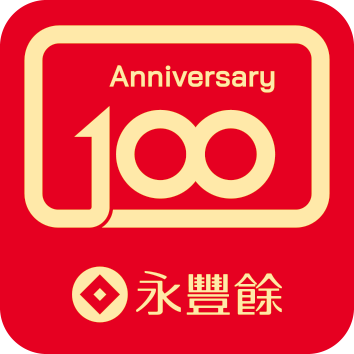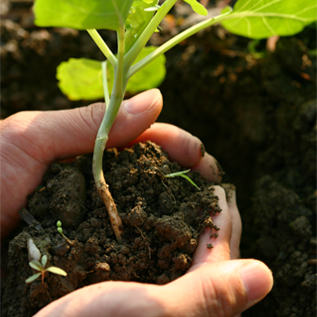
- About Us

- Business

- Investor Relations

- ESG

- Careers

- Media Center

- YFY 100th
- A Message from Our Leader
- Company Profile
- Vision and Mission
- Business Strategy
- Our Brand
- Organization
- Achievements



In 2024, the global economy experienced moderate growth. Factors such as easing inflation and the rise of generative AI contributed to a recovery in trade and investment within advanced economies. However, geopolitical risks—including prolonged conflicts in the Middle East, the Russia-Ukraine war, and escalating U.S.-China trade tensions—tempered optimism. Looking ahead to 2025, major international organizations forecast a cautiously optimistic trend of "low-growth normalization," with global economic growth expected to range between 2.7% and 3.3%. Nevertheless, uncertainties arising from geopolitical developments and the economic policies of the U.S. Trump administration may reshape the global political and economic landscape, increasing market volatility.
In response to the challenges posed by global climate change and the transition toward net-zero emissions, YFY is dedicated to promoting a low-carbon, energy-efficient economy, advocating for the circular economy, and developing non-plastic materials—all centered around its "saccharide economy" model. Amid rapidly changing market dynamics, YFY continues to drive energy restructuring, ensure operational resilience, and adapt flexibly to evolving market demands. These initiatives not only enhance customer value but also aim to deliver long-term value creation for investors.
Financial Performance
In 2024, YFY reported consolidated revenue of NT$ ○○○ billion and net income attributable to shareholders of NT$ ○○ billion, with earnings per share reaching NT$ ○○. Despite the volatile macroeconomic environment in 2024, contributions from equity-method investments, such as E Ink Holdings, generated approximately NT$ ○○ billion in investment gains, while SinoPac Financial Holdings contributed approximately NT$ ○○ billion in cash dividends to YFY. The following is a brief summary of YFY's operational highlights and future outlook.
In response to global climate change and the trend toward decarbonization, YFY is accelerating its "saccharide economy" strategy, building on a robust foundation of a comprehensive circular economy, YFY is transitioning into the climate technology sector by focusing on three core strategic areas: low-carbon, energy-efficient solutions, circular economy initiatives, and plastic-free materials. The company is expanding its operational footprint by offering integrated, value-added services in digital intelligent energy and low-carbon solutions. These services include renewable energy sales, smart energy management, virtual power plants, and carbon management services, providing comprehensive net-zero solutions that promote collaboration with enterprises and institutions to achieve collective carbon reduction.
Under this transformative direction, YFY has identified two key areas of focus: Energy Transition and Materials Innovation.
As Taiwan enters the era of carbon pricing, with the collection of carbon fees scheduled to commence in 2026, YFY has developed plans to decarbonize its energy structure and optimize processes to improve energy efficiency. The company is submitting self-reduction plans to qualify for preferential rates and is utilizing its self-developed carbon management platform to digitally monitor real-time carbon emission data across all its factories. This strategy allows YFY to balance operational costs with environmental protection, aiming for simultaneous production growth and carbon reduction.
YFY considers reducing reliance on fossil fuels to be a fundamental solution to climate change. To accomplish this, the company is enhancing its use of recycled paper sludge, biomass-rich reclaimed wood pellets, and other resource-recycling fuels, including slag, sludge, and biogas-generated power, as substitutes for coal in co-firing boiler systems. This transition facilitates the move toward low-carbon fuels.
Additionally, YFY is enhancing its self-generated electricity capacity to reduce dependence on grid electricity. At its Hualien plant, which houses Taiwan's largest lignin-based bioenergy system in the pulp and paper industry, YFY is advancing its research and development efforts. By increasing the lignin concentration from 65% to 85%, the plant aims to double its annual green power production from 150 million kWh. This initiative will significantly improve energy efficiency and green energy output while progressing toward zero-carbon green energy production.
To further reduce carbon emissions, YFY has been planning and implementing energy-saving and carbon-reduction engineering projects since 2024. These initiatives include equipment upgrades, system integration, and digitalization efforts, such as investing in new paper machines to replace low-efficiency equipment and upgrading steam systems and vacuum turbine pumps to decrease steam and electricity consumption.
The company is also developing a smart energy management system (EMS) to optimize resource utilization and efficiency. Microgrid energy storage systems are being deployed to enhance the resilience of power grids at the plant level, while digital technologies are being integrated to improve energy consumption. By implementing AI-driven smart production technologies, YFY aims to enhance product yields, reduce rework rates, and minimize energy waste in inefficient production processes. These initiatives will extend into 2025, reflecting the company’s commitment to sustainable operations.
Materials Innovation
YFY's groundbreaking use of agricultural residues in papermaking has initiated the concept of the "saccharide economy." In response to global trends aimed at reducing plastic use and promoting non-petrochemical materials, YFY combines advanced technology with material science to create a diverse array of innovative paper-based products. These initiatives broaden the applications of saccharide materials, effectively addressing carbon reduction from the very beginning of the production chain—specifically, during raw material selection.
YFY has developed paper products with bio-carbon storage capabilities that integrate seamlessly into all aspects of daily life, making sustainable living a tangible reality. Examples include:
- Food:Fresh produce preservation bags made with YFY’s proprietary water-dispersible coating technology provide long-lasting freshness, resistance to water and oil, and completely eliminate environmentally harmful 7P plastics.
- Clothing:ECOCELL, an innovative plant-based fiber derived from FSC-certified pulp. It is produced through a closed-loop process that utilizes non-toxic, environmentally friendly solvents. This fiber provides natural, eco-friendly textile materials that are recyclable, breathable, moisture-absorbent, and comfortable.
- Living:The "Mayflower All-Paper Packaged Tissues" feature patented tear-resistant paper material and heat-sealing technology, replacing plastic packaging with 100% recyclable paper.
- Mobility:Paper-based RFID tags are produced without the use of acidic or alkaline solvents, employing flexographic printing techniques to minimize the need for adhesives. This makes them the most environmentally friendly IoT identification labels available. They are widely utilized in retail, logistics, and inventory management, offering efficient and sustainable solutions.
YFY is also dedicated to the long-term development of the industry. Acknowledging the implications of international carbon border adjustment mechanisms, which necessitate that products endure third-party evaluation of their greenhouse gas emissions, YFY has actively participated in the creation of the Corporate Standard for Carbon Emissions in Paper Products. Verified by TÜV Rheinland, this pioneering global standard empowers producers to minimize carbon emissions throughout the supply chain by optimizing raw material selection. Additionally, it assists consumers in distinguishing between similar products by highlighting environmentally friendly alternatives.
Promoting Social Good and Environmental Sustainability
YFY prioritizes environmental conservation and social responsibility. In 2024, the company sponsored a biodiversity enhancement project aimed at restoring wetlands near the Old Iron Bridge in Kaohsiung. In 2025, YFY will collaborate with industry, government, and academia on Asia’s first artificial wetland carbon sequestration enhancement project. This initiative includes the introduction of Taiwan’s first freshwater wetland carbon reduction methodology and the construction of a carbon budget model for artificial wetlands. By quantifying carbon sequestration capabilities, the project will provide scientific data to inform future wetland management and enhancement efforts.
At its Hualien facility, YFY has established an environmental education park that integrates practical courses to promote the principles of a circular economy. The company is dedicated to achieving zero penalties for environmental violations, fostering social trust, and delivering values of fairness, sustainability, and harmony to society.
Future Outlook
During the opening ceremony of YFY’s centennial celebration, YFY Academy President Ho Shou-Chuan stated, "YFY has been inseparable from saccharides since its inception." YFY is committed to promoting sustainable development through the saccharide economy and is transforming into a climate technology enterprise.
In the upcoming year, YFY will concentrate on transforming its energy structure, advancing smart manufacturing and digital innovation, enhancing operational efficiency, conducting product research and development, promoting high-value-added supply chains, and pursuing strategic investments and incubation. These initiatives will ensure that the company remains adaptable, consistently profitable, and committed to sustainability.
Wishing you good health and prosperity!